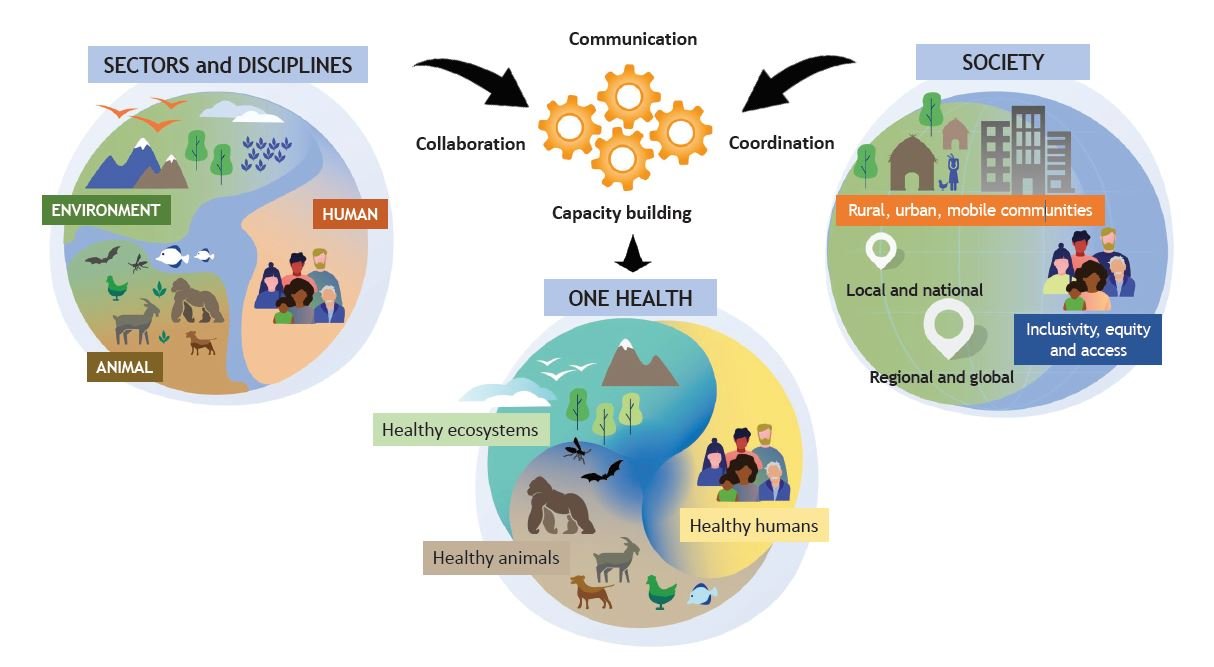OHHLEP's One Health Definition
The term One Health is on everyone's lips and is used by various stakeholders worldwide. However, the exact definition of the term often remains vague, which makes it difficult to design and implement concrete actions.
The Food and Agriculture Organization of the United Nations (FAO), the World Organization for Animal Health (OIE), the United Nations Environment Programme (UNEP) and the World Health Organization (WHO) established an advisory body, the One Health High Level Expert Panel (OHHLEP), in 2021. This panel has developed an operational definition of One Health in order to develop a common language and a common understanding of One Health. The activities of the One Health Platform are based on this definition.
Fig.: OHHLEP One Health Definition, Quelle: WHO, FAO, OIE, UNEP
The comprehensive OHHLEP One Health definition aims to promote a clear understanding and translation across sectors and disciplines. It is intended to help establish holistic approaches worldwide and demonstrate their benefits. The definition is supported by the OIE, FAO, WHO and UNEP.
Further links:

